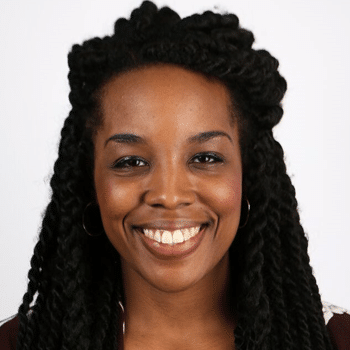Shondra Mings currently works at the University of Ottawa as a Professional Development Specialist where she helps students work towards reaching their career goals. She graduated from the University of Ottawa with a degree in Conflict Studies and Human Rights as well as completed her Bachelor’s of Education at Queen’s University. She has experience working in a post-secondary, as well as within social service organizations in a capacity that has focused on equity and access to education and the job market, specifically for communities that have historic and systemic barriers to access. She believes that it is fundamental that all of her work is contextualized in intersectionality and prioritizes the realities of those furthest in the margins of society. Shondra has also used her skills to take on various other roles such as Anti-Racism Ambassador for Experiences Canada as well as worked with arts organizations in the Ottawa area.
Tell us about your first job and early-career experiences.
I started working young and held all sorts of jobs from being a camp counsellor, babysitter, a newspaper deliverer, cashier and waitress all before the age of 16. My mom always told me that I have my whole life to work when I was younger, but I loved the financial freedom it gave me and the different skills and knowledge I acquired from working. One notable early career experience that stands out to me is when I was in high school. I was able to find a job at the Health Department where I worked as a Peer Leader for a group called REACT (Resist Expose and Challenge Tobacco). I think this was the first job where I really understood the saying “Find a job you love and you will never have to work a day in your life.” I loved being able to advocate, create campaigns, collaborate with youth on a cause that we were passionate about. I was able to meet amazing youth in my community as well as across the province youth that were artists, videographers, tech geniuses all working towards the same goals. We had supervisors that were invested in our development and believed in our potential to be leaders in our community. There was so much hard work, laughter and joy that went into our projects and we were able to see the direct impact it had on informing policies in relation to tobacco. This job had a big impact on me as an individual, but also the trajectory of my career because I had some amazing mentors that taught me the importance of investing in youth.
You have been working in Career Education and actively advising and advocating for youth employment. How did your career path lead you to move into this role?
My career path has not been linear. It has given me a great deal of memorable experiences and has allowed me to explore my interests and passions. One thing that I have always known is that I wanted to be an advocate for individuals and communities. When I completed my first degree I worked in a variety of organizations. In one particular position at the YMCA, I had the opportunity to lead, develop and facilitate a youth internship program with youth who have had barriers to education and employment. The youth were brilliant, funny, kind, yet experienced so many barriers that hindered their success that were beyond their control. It was gratifying to help them find internships and be able to facilitate workshops to help their professional development. Resources and support available to youth are so important, so they can thrive. When I was finishing teachers college I saw a posting to be a Professional Development Specialist within higher education and it excited me because I knew I would be able to continue supporting students and help them to reach their career goals.
What is the most rewarding part of your work? What is the most challenging?
The most rewarding part of my work is seeing students get jobs and gain confidence as they navigate the job market in their respective fields. Even though I work within a large institution, I have the chance to get to know some of my students quite well after numerous appointments or workshops on job search strategies and resume and cover letter writing. It reminds me of what the job hunt was like when I was in their shoes — the countless applications, nervousness for interviews, and the hope that an employer will take a chance on you. I know that ultimately it is their hard work and dedication that contributes to their success, and it’s nice to know I had a small part to play helping them reach their goals.
The most challenging part of my work would be not being able to help all students. CO-OP is a large program that does amazing work, but some students face greater barriers that make it challenging for them to find work placements. Students are also under immense pressure to perform well in their studies as well as gain work experience and I have seen how this can become very stressful. We provide a great deal of resources to help students, but it doesn’t discredit the fact the job market can be a challenging place where bias and systemic discrimination can have a direct impact on students job prospects.
You were an Anti-Racism Ambassador with Experiences Canada from September 2020-December 2020. Tell us about this work and the impact you wish to have.
I was selected with 7 youth across Canada to facilitate dialogues on anti-racism. In light of everything that has happened last year with the resurgence of the Black Lives Matter movement, I was excited to be able to participate in this project. As an Anti-racism Ambassador I developed content and curriculum for teachers to be able to speak to students about topics such as justice and security, health as well as many other topics that affect Black, Indigenous and people of color. We facilitated live events on Zoom and Facebook with prominent BIPOC activists across Canada and created educational resources that remain available to educators on the Experiences Canada website.
I hope my contributions will give youth and educators the resources necessary to learn more about racism in Canada and what they can do to be allies. It’s not enough for people to understand anti-racism, but they must demonstrate it through their actions in their work, in their schools, communities and with the people they meet. These are not conversations I had when I was in elementary and high school, but topics that I had to learn and understand on my own. Now there are many resources available and I hope it will encourage and inspire youth and educators to have these critical conversations.
What suggestions do you have for early-career women of colour as they navigate their careers during the pandemic?
Firstly, I encourage early career-women of color to continue to focus on their career interests and how they can get involved. We are in a pandemic, but there are still organizations hiring as well as looking for volunteers. If they can’t find anything then sign up for a course, write a blog, work on a passion project and engage with the community in which you want to participate. Continue to expand your skills so when your opportunity comes you will be ready.
Networking with people in the field is key. Eighty percent of the jobs are in the hidden job market which means they are not posted or advertised online, but through networking with friends, family, potential employers and volunteering. Try to set up informational interviews online with individuals in your industry. This way when opportunities do arise you make be thought of or informed about the position because of the networks you created.
Lastly, I encourage women of color to define their future and not let society determine what it will be. Continue to pave a way for yourself despite the setbacks or closed doors. Surround yourself with people who believe in your potential. Whether it be a close friends from work, family, or a mentor, be sure to find your people. Navigating one’s career is difficult, and can be made easier when you find people who believe in your vision and believe in you.
How do you invest in your own potential as a Black woman?
I invest in my potential by giving myself the space and freedom to explore what moves me in all facets of my life. One way I have consistently invested in myself the past few years is by creating a vision board. A vision board is a visual representation of your goals and through visualizing your goals you are able to manifest them. I started vision boarding at the beginning of each year 3 years ago and it has allowed me to focus on my professional, academic and personal goals. It has been a powerful technique that has allowed me to take time to reflect as well create action plans to help manifest these goals.
By seeking out opportunities to learn and grow that align with the vision that I have for my life, I am investing in myself. For example, this year I decided to apply to complete a graduate degree, I am learning more about finances, working on my side hustles, seeking professional development, and advancing in my studies in violin and piano. I also wanted to develop more environmental sustainable practices. These are some themes that you would find in my vision board and it is through visualizing these things as well as creating steps to achieve them that I am constantly investing in my potential.
At AHF we believe in celebrating and amplifying those who have paid it forward in our lives and careers. Who has been one of your greatest mentors, allies or sponsors and why?
To be honest it is difficult to choose one mentor given there are so many people who have shaped and molded me along the way. One influential person would be my grandfather, Ethan Mings, because it all starts with him. He immigrated to Canada in the 1920’s from Barbados. He obtained his Bachelors of Education at the University of Toronto and then completed his Masters of Education at Brock University. He navigated his career and life in an unfamiliar country at a time where the social, political and economic state of the country did not always welcome him with open arms, yet he made a life and career for himself in Canada and he did so with such grace.
As a child he shared his love of learning with his grandchildren, often sharing books or having poetry contests for us. He built a playground from an uprooted tree in his backyard, and he would take us figure skating. He was an avid gardener, pianist, cook, writer among so many other things. Even in his 80’s he was always reading, learning and growing which inspired me to follow in his footsteps. He was so many things in a society that often reduced Black men’s value and worth to negative stereotypes. What I learned from him is that I can be so many things regardless of the career I choose and the importance in exploring one’s creativity, passions and interests . He impressed in me the importance of finding joy in the small things and trying to grow in all areas of my life.



